What Happens When a Husband Goes to Jail in the Middle of Life?
Mindy Bukshpan transformed a difficult period in her life into an opportunity to establish 'Freedom for Families,' an organization providing support to families where the main household member is absent, especially for religious prisoners' families. She shares her story in an exclusive interview.
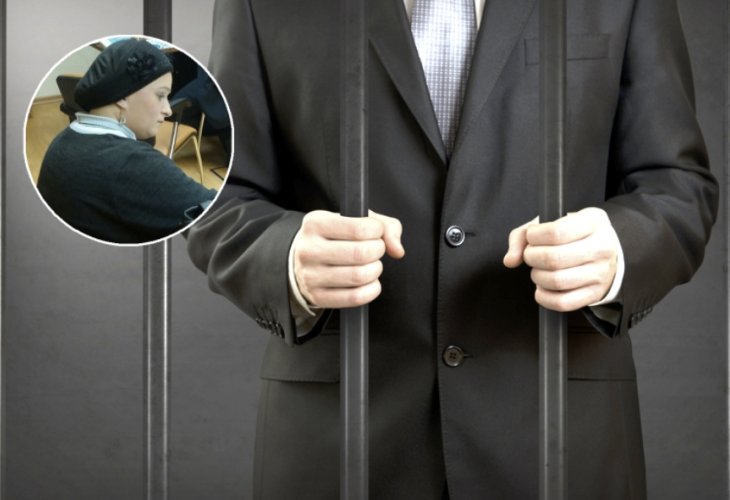 In circle: Mindy Bukshpan (Background photo: shutterstock)
In circle: Mindy Bukshpan (Background photo: shutterstock)Mindy Bukshpan was just an everyday woman until her life changed in an instant. She was the wife of a Torah scholar, making a living by taking care of infants, a mother of several adorable children, and a devoted wife. She and her husband Yochanan were the classic example of a typical religious family, the kind you'd pass without notice, until their world was turned upside down suddenly on the eve of Purim.
That dreadful day, Yochanan was abruptly arrested following a complaint lodged by a relative who had strayed from the path, accusing him of various offenses after an unsuccessful attempt to extort a large sum of money from him, he claims. Bukshpan, a completely ordinary and young man, was suddenly arrested on Purim eve and convicted in a controversial ruling. In no time, this devout man from Beitar Illit found himself sentenced to eight years in prison.
Despite his conviction and imprisonment, Bukshpan did not give up. He continued to fight for his innocence even while incarcerated. Only after a year and eight months did the Supreme Court decide unanimously that Bukshpan was indeed innocent. Since the founding of the State, only 18 people have been acquitted by the Supreme Court; Bukshpan is one of them—the first religious Jew, according to him, to be acquitted there. The Supreme Court highlighted significant flaws in the complainant's testimony and criticized the previous ruling, which ignored dozens of pieces of evidence that could have exonerated the defendant.
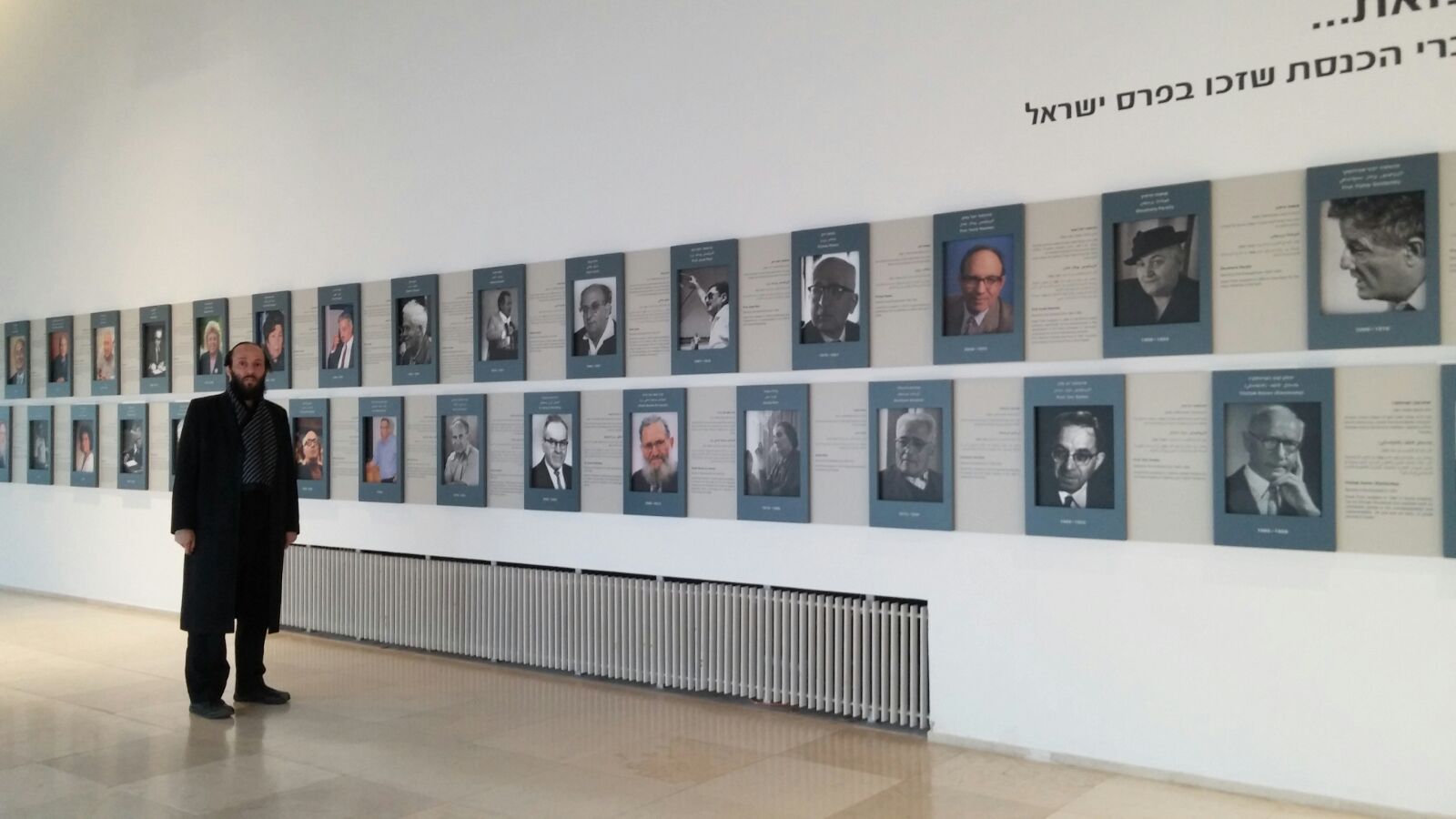 Yochanan Bukshpan, her husband
Yochanan Bukshpan, her husband"If Yochanan hadn't been in prison, none of this would have happened"
"Today I know there is no other reason for what we went through; Hashem wouldn't have brought this trial upon us unless He wanted to open a door I never dreamed I could open," says Mindy. "I never thought that I, Mindy from Beitar Illit, a simple woman working as a caretaker for babies, would establish such a large organization and help so many families whose worlds have crumbled. If Yochanan hadn't been in prison, none of this would have happened."
Mindy, a petite woman with unwavering determination, single-handedly founded 'Freedom for Families,' a charitable organization supporting families of observant prisoners. This is the first organization of its kind, providing support to families thrust involuntarily into impossible situations.
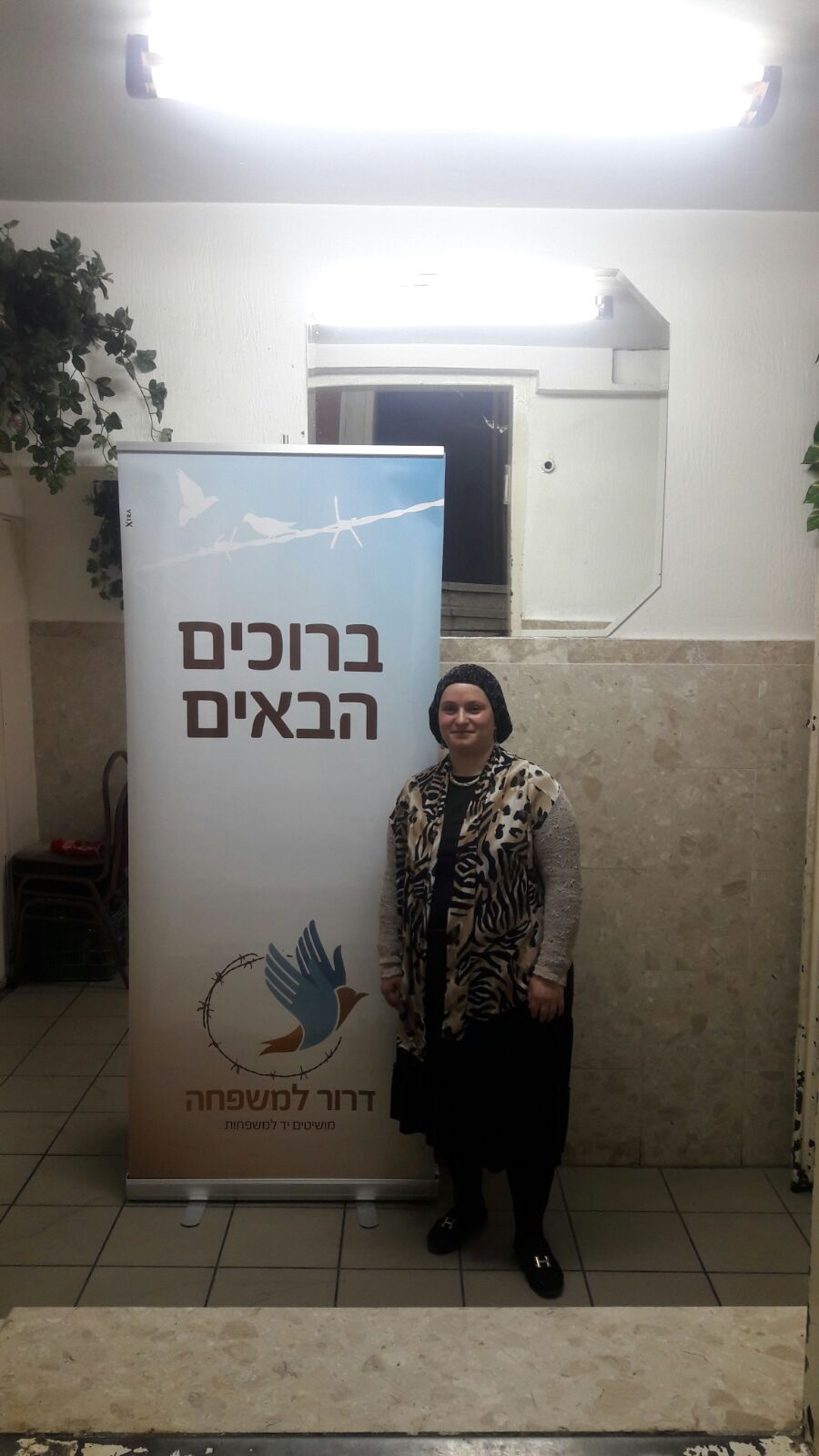
"The challenge for such a family is incredibly tough," explains Mindy. "The initial shock is immense, the children are exposed to ridicule and troubling questions, the father of the family is absent, and the legal expenses reach astronomical amounts. Even if the husband isn't the main breadwinner, the wife typically has to quit her job to deal with the kids and the chaos that ensues. I worked all my life, but after my husband went to jail, I resigned within a month. Suddenly, I had to run the house alone, taking care of him. I couldn't work, and this happens to most women whose husbands are imprisoned. The hardest thing, more than anything, is the barrier of shame and secrecy. There are numerous organizations that help orphans and widows, and rightfully so. But when someone passes away, there’s no mortgage or debts. There are funds to help families support their children. But when someone is arrested, the surrounding family's life collapses. Not only do you need to deposit money for them in prison, there are legal costs, and the person is no longer working. The family’s source of livelihood is broken. The person might be in prison, rightfully or not, but the wife and kids? You can't comprehend what they go through! What debts are they left with?"
Where did the decision to start the organization come from?
"It was during the Nine Days. Shortly after Yochanan went to jail, I kept receiving dozens of calls from family and friends wanting to help and asked what they could do. It was during the Nine Days, when washing and cleaning aren’t done, and I decided to use the time for something beneficial. I decided to organize a challah-baking prayer for Yochanan's merit. We organized 40 women to come, and among them was a relative with a sick child. During the evening, she told me about a support group she’s part of and shared how much strength it gives her to deal with the illness and the help she receives daily. 'Even though the doctor says what he says,' she told me, "We in the group know and believe that everything is in the hands of Hashem.'
I returned home filled with thoughts. I thought to myself, for a religious person with a sick child, there's no calculation; he knows that everything is from Hashem. Despite this, that woman mentioned how the support group helped her cope. What about us, the wives of prisoners? Those dealing with scorn and difficulty from the community? If those who find it easier to internalize that everything is from Hashem have a support group, why shouldn’t those of us facing greater trials of faith have a similar group?"
For Mindy, that moment was a turning point. That day, she decided to establish a support group for wives of religious inmates. She organized a spontaneous meeting with a few bottles of drinks, disposable cups, some store-bought cakes, and jumped into action. She made calls for several days to all the women she knew and offered to meet. Not everyone was impressed with the idea initially.
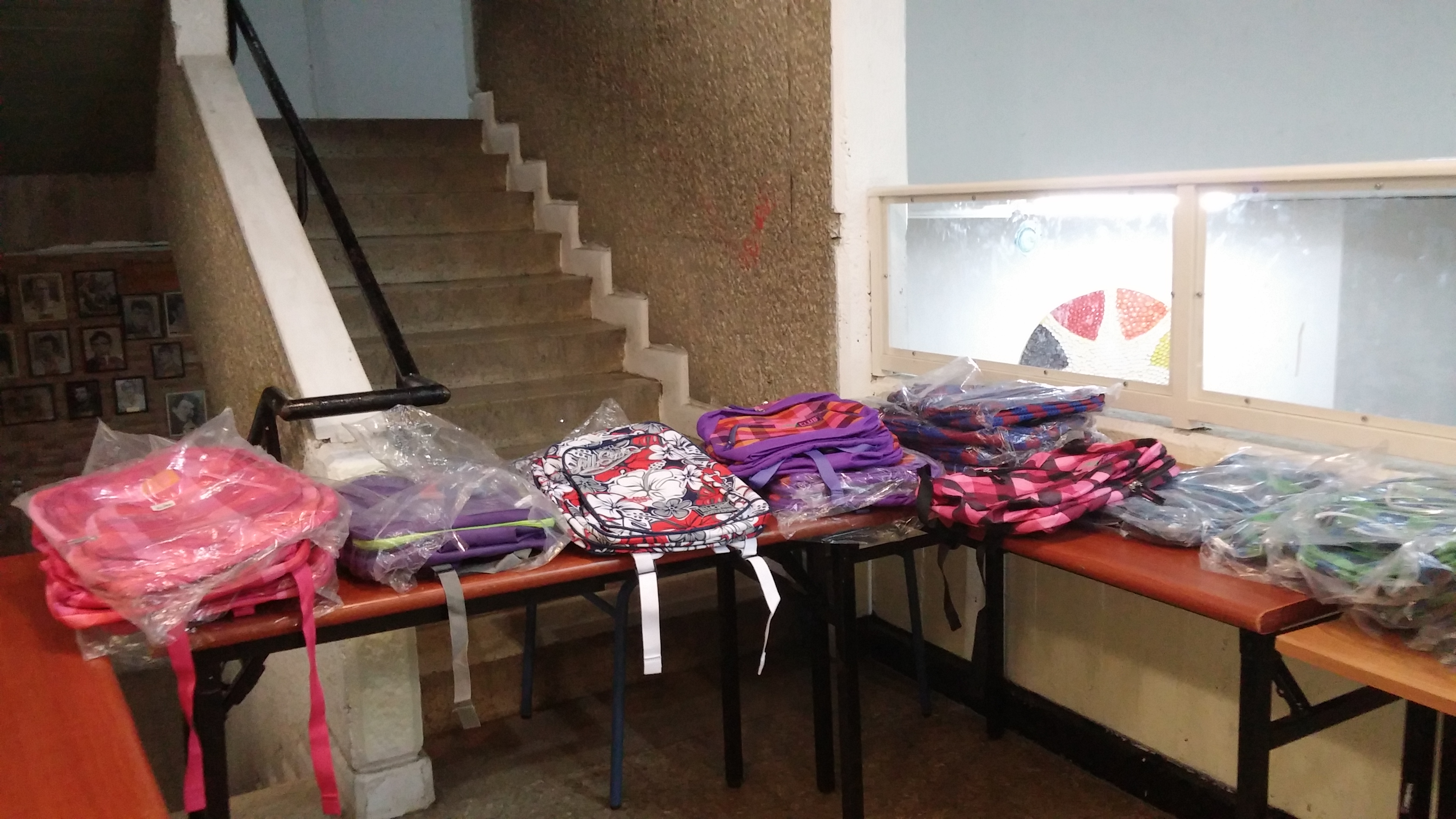
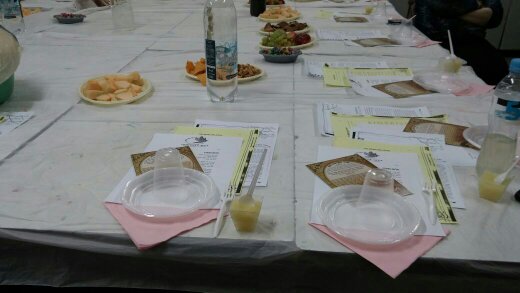
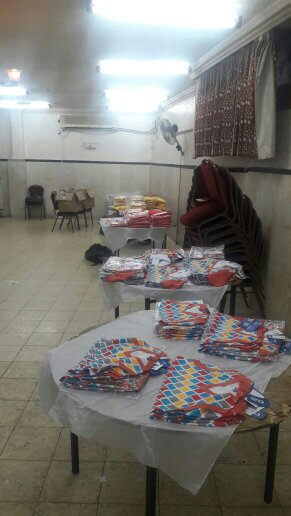
"For the first meeting on the 7th of Elul, five women arrived," she recalls. "By the second meeting, which took place on the eve of Rosh Hashanah, seven women came. In subsequent meetings, I noticed the group growing from meeting to meeting." Over time, the group's meetings became monthly. Today, over 300 families are members of the organization.
How do you overcome the barrier of shame and secrecy in such cases?
"Because the challenge is so hard and seemingly impossible, women understand at some point that they need our support and help. To you, I say, I wish women would be willing to break the ice and come to us from the start, because there are so many things a regular person without a criminal past doesn't know about at all. How to deal with a lawyer, for example. How to prepare for a court hearing, how to prepare the children for the fact that dad is in jail. If there's a strong message I'd like to convey to women reading this, it's the following words: Don't be ashamed to reach out to people who can help. It's a waste to spend so much energy on shame and concealment. This isn’t the time."
"Suddenly, there's a shoulder to cry on"
The significance of the support group, Bukshpan clarifies, is invaluable. "Besides being a huge morale boost for the women," Mindy explains, "there's help in various areas. Suddenly, there's a shoulder to cry on, someone who understands the situation and shares the journey. There's also significant help with all the bureaucratic issues that the women in the organization provide for each other."
The questions Bukshpan encounters since establishing the association touch everything related to prisoners' lives. Often, she recounts, she receives urgent calls from women heading to a visiting day who realize they've forgotten their ID card at home, wondering if a driver's license will suffice or if they must turn back. Recently, she dealt with a woman arranging her son's wedding and didn't know how to manage her husband's release from prison for the celebration. The organization also supports dealing with societal reactions and financial crises the family might face.
"There was a woman who fell into huge debts after her husband was imprisoned," she recounts. "She worked from morning till night, and all the money went to debt repayments. There was no money left to buy food for the kids, nor to pay the electricity bills and rent. When I tried to contact her, she said she had no time to attend the meetings organized by the association. I didn't give up; I kept calling her until one day she just broke down and cried. 'I have no bread to give my kids at home,' she told me in tears. 'My fridge is empty, no milk, nothing.' 'Crying won’t help,' I told her. 'Let's meet and cheer up.'"
The woman came to the meetings and formed connections with the participating women. When Bukshpan learned about her story, she was utterly shocked. She connected her with some good lawyers to reach a settlement with the creditors, raised funds from charitable organizations, and helped her close the debts. "A few months ago, we organized a joint Shabbat for all the women," she shares. "During that Shabbat, all the women introduced themselves and shared their stories, and that woman said: 'Know that if it weren't for Mindy and the organization, I wouldn't be alive today, I wouldn’t have survived. Today, I manage to buy food for my children, I manage to take care of them. I don't know what I would have done without these meetings."
Additional activities of the 'Freedom for Families' include organizing monthly meetings for women and children and strengthening evenings during holidays. "It's the only place where they feel equal. Children weren’t the ones who sinned or committed a crime; they’ve done nothing, yet pay a hefty price. The situation at home is tough: dad is absent, mom is present-yet-absent. Their social adjustment is painful and excruciating. They are ostracized by society; they’re exposed to their peers’ teasing and significant shame. At our meetings, they suddenly feel equal, they have someone to talk to, someone to share experiences openly with. One of the things I dream of is providing emotional therapy for these children within the framework of the organization. Unfortunately, most families in the organization face extreme financial hardship. Some families are literally on the brink of hunger."
Let’s not ignore reality. Establishing a charity for a family in crisis where the husband is jailed is not very glamorous.
"But the wife and children aren’t to blame! They haven’t sinned or committed a crime, and they shouldn’t be punished! When a woman contacts me, I don’t ask what her husband was jailed for. It doesn’t interest me. There are women in our organization whose husband's crimes I still don’t know. Whether your husband stole or harassed or protested doesn’t matter. He’s in jail, and you’re at home by yourself, facing feeding the kids alone, dealing with the immense shame, and facing Shabbat without a father. I don’t downplay it. A person who committed a crime needs to pay their debt to society, but his family isn’t guilty. They’re not guilty! The community needs to understand that if we don’t give prisoners and their families the chance to rehabilitate, they won’t recover, and the cycle of hardship and difficulty will repeat itself. We can’t truly estimate what a woman goes through when her husband is jailed in the middle of life. People don’t understand what a crisis it is for the family, for the children. It’s no less challenging than dealing with illness or death of a family head, and sometimes the challenge is even greater."
Contact Mindy Bukshpan at 052-65154930

